AIFA Research Projects
Projects are awarded AIFA grants after a rigorous selection process, reviewed by a panel of leading experts in allergy and immunology research.
Learn more about projects that have been awarded grants
AIFA Research Grants 2024

Rapid Omalizumab and Peanut Immunotherapy in Adults with Peanut Allergy: OPAL 2
Dr Jacqueline Loprete
St Vincent's Hospital, Sydney

Leveraging learnings from the Low dose Multi-Nut Oral immunotherapy in Pre-schoolers (LMNOP) Pilot Trial to reduce food allergy burden.
Dr Tim Brettig
Murdoch Children’s Research Institute (MCRI), Melbourne
Research Team: Prof Kirsten Perrett, A/Prof Rachel Peters, Dr Vicki McWilliam (MCRI)

Early life tree nut IgE sensitisation patterns among infants with peanut allergy and the tolerability of tree nut ingestion
(Allergy)
Ms Kayla Parker
Murdoch Children’s Research Institute (MCRI), Melbourne
Research Team: Prof Kirsten Perrett, A/Prof Rachel Peters, Dr Vicki McWilliam, Dr Victoria Soriano, Ms Audrey Walsh (MCRI)

Identification of relevant allergens in alternative food proteins from insects utilizing in vitro and in vivo diagnostic approaches
(Allergy)
Dr Shaymaviswanathan Karnaneedi
Murdoch Children’s Research Institute, Melbourne
Research Team: Prof Andreas Lopata (James Cook University), Prof Sheryl van Nunen OAM (The University of Sydney), A/Prof Graham Mackay (The University of Melbourne)(MCRI)

Revealing the B cell-intrinsic effects of pathogenic KMT2D mutations in Kabuki syndrome (KS) and Cold Agglutinin Disease (CAD)
(Autoimmunity/Inborn Errors of Immunity)
Dr Etienne Masle-Farquhar
Garvan Institute of Medical Research, Sydney
Research Team: Prof Russell Dale, Dr Melanie Wong, Dr Shruti Swarmy, Dr Jacinta Perram, Dr Katherine Jackson, Prof Susan Clark, Dr Timothy Peters, Christopher Jara, Caitlin Bartie (Garven Institute of Medical Research), Dr Yogesh Jeelall (Sir Charles Gairdner Hospital, Perth)

Screening for genetic immune disorders using newborn genetic testing
(Autoimmunity/Inborn Errors of Immunity)
Dr Isabelle Bosi
Children’s Hospital Westmead and Royal Prince Alfred Hospital, Sydney
Research Team: A/Prof Owen Siggs, A/Prof Elissa Deenick, (Garvan Institute of Medical Research), Prof Bruce Bennetts, Dr Enzo Ranieri, Dr Melanie Wong (Children’s Hospital Westmead) A/Prof Paul Gray (Sydney Children’s Hospital), Dr Kahn Preece (John Hunter Hospital, Newcastle), A/Prof Stephen Adelstein (Royal Prince Alfred Hospital), Dr Joanne Smart (Royal Children's Hospital, Melbourne), Dr Natasha Moseley (Perth Children’s Hospital), A/Prof Jane Peake (Queensland Children's Hospital), Dr Jovanka King (The Women’s and Children’s Hospital, Adelaide)
AIFA Research Grants 2023

Preventing childhood food allergy: wave 2 of the EarlyNuts study
A/Prof Rachel Peters
Murdoch Children's Research Institute (MCRI), Melbourne

Milk Up Trial: A randomised controlled trial investigating the safety and efficacy of early and graded introduction of milk via a “milk ladder” to accelerate the resolution of IgE mediated cow’s milk allergy
Dr Vicki McWilliam
Royal Children’s Hospital, Murdoch Children's Research Institute, Melbourne
Research Team: Prof Kirsten Perrett, A/Prof Rachel Peters, and Dr Tim Brettig (MCRI), Dr Joanne Smart (Royal Children's Hospital)

Improving the survival and clinical outcomes of patients with IFNAR1 deficiency in Oceania
Dr Kuang-Chih Hsiao
Starship Children's Hospital, The University of Auckland, New Zealand
Research Team: Dr Maia Brewerton (Auckland City Hospital), Dr Alberto Pinzon Charry (Queensland Children's Hospital), Dr Andrew Wood (Starship Blood and Cancer Centre), Dr See-Tarn Woon (LabPLUS)
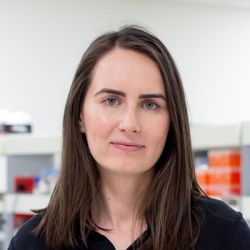
Risks of eating disorder development in a national food allergy cohort: The RiskED study
Ms Daniela Ciciulla
Murdoch Children’s Research Institute, Melbourne
Research Team: A/Prof Jennifer Koplin (University of Queensland), Dr Vicki McWilliam and A/Prof Rachel Peters (MCRI)

Evaluating the role of MRGPRX2 activation in Idiopathic Anaphylaxis
Dr Logan Gardner
The Alfred Hospital, Melbourne
Research Team: Dr Priscilla Auyeung, Dr Mark Hew, Dr Celia Zubrinich, and Dr Stephanie Stojanovic (Alfred Health), Dr Graham Mackay (The University of Melbourne)

Improving the diagnosis, monitoring and prognosis of people with autoantibody-associated systematic autoimmune diseases
Dr Adrian Lee
Westmead Institute for Medical Research, Sydney
Research Team: A/Prof Joanne Reed (Westmead Institute for Medical Research, University of Sydney), Dr Kha Phan (La Trobe University), Dr Jing Jing Wang (Flinders University), A/Prof Ming-Wei Lin (Westmead Institute for Medical Research, University of Sydney and Westmead Hospital), Prof Tom Gordon (Flinders University, SA Pathology and Flinders Medical Centre)

A novel genetic cause of inborn error of immunity – validation and therapeutics
Dr Shruti Swamy
Garvan Institute of Medical Research, Sydney
AIFA Research Grants 2022
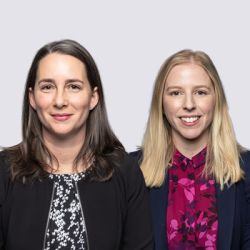
Immune mechanisms governing the natural resolution of peanut allergy
Co-investigators A/Prof Rachel Peters and Dr Melanie Neeland
Murdoch Children's Research Institute, Melbourne.

A novel approach to diagnose cashew and pistachio allergy using peptide microarray technology
Dr Brynn Wainstein
Sydney Children’s Hospital and the University of New South Wales

Antibodies to SARS-CoV-2 in immunoglobulin products and their capacity to augment immunity in immunodeficient patients
Dr Emily Edwards
Monash University and the team includes researchers from Alfred Health and the Burnet Institute, with collaboration from the patient organisation AusPIPs and the Australian Red Cross
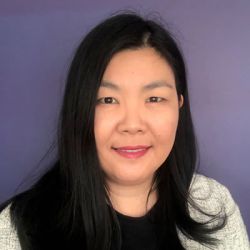
ImPaCT-PID study (Improving Patient Centred Transitional Care in Primary Immunodeficiency)
Dr Alisa Kane
St Vincent’s Hospital and will collaborate with the patient organisation Immune Deficiencies Foundation of Australia (IDFA) and colleagues at the University of NSW, the Sydney Children’s Hospital, and the Children’s Hospital at Westmead.
AIFA Research Grants 2021

Immune mechanisms underpinning remission of allergy
Professor Mimi Tang
Murdoch Children's Research Institute, Melbourne.

Investigating impaired T cell activation in children with food allergy
Dr Peter Hsu
Children's Hospital at Westmead
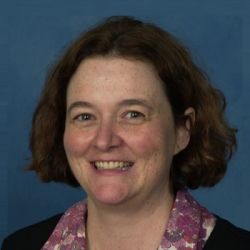
Investigating T follicular cell numbers and neuritin levels in patients with food allergy
A/Professor Katrina Randall
The Canberra Hospital/ANU Medical School

SARS CoV2 infection and vaccination in inborn errors of immunity
Professor Stuart Tangye
Garvan Institute of Medical Research

Harnessing primary immunodeficiencies to understand and treat human allergic disease
A/Professor Cindy Ma
Garvan Institute of Medical Research
AIFA Research Grants 2020
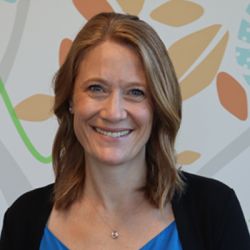
Eradicating food allergy in children
A/Prof Kirsten Perrett
Murdoch Children's Research Institute, Melbourne.
Low dose Multi-Nut Oral Immunotherapy (OIT) in Preschoolers (LMNOP) Pilot Study
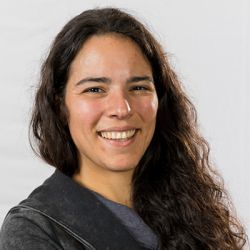
A novel diagnosis for drug allergy
Dr Catarina Almeida
The University of Melbourne
Altered self-reactivity of CD1d-lipid restricted “Natural Killer T cells” by sulfa-like drugs

Identify unmet needs of HAE
Dr William Smith
The Royal Adelaide Hospital
A state-wide survey of patients with Hereditary Angioedema (HAE) in South Australia
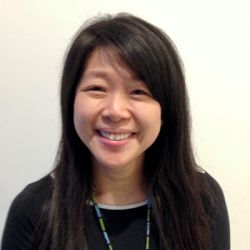
Improving the treatment of patients with specific antibody deficiency
Dr Celina Jin
The Royal Melbourne Hospital
Evaluating Vi-polysaccharide vaccine responses in specific antibody deficiency patients receiving immunoglobulin replacement.
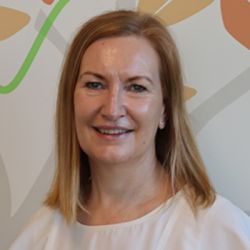
Prevent the development of cow’s milk allergy in children
Dr Vicki McWilliam
Murdoch Children's Research Institute, Melbourne.
The feasibility of a “milk ladder” approach for the introduction of cow’s milk to infants with mild-moderate IgE mediated cow’s milk allergy - a pilot study
AIFA Research Grants 2019

Food Allergy and MAIT cells
Dr Sidonia Eckle’s research aims to determine if mucosal-associated invariant T cells mediate food allergies.

Vitamin D and Food Allergy
Dr Rachel Peters is researching if resolution of vitamin D deficiency predicts resolution of food allergy in infants.

Severe Drug Allergy Register
Dr Jason Trubiano’s team aims to study high risk drug allergies by building a special registry called AUS-SCAR.
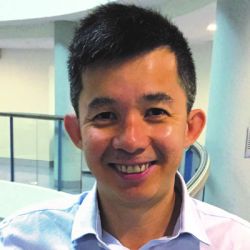
Improved Diagnosis of PID
Dr Tri Phan’s research will utilise machine-based learning to improve the diagnosis of primary immunodeficiency.
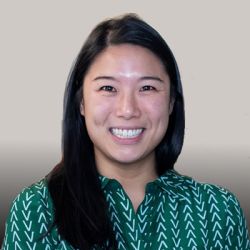
Next generation sequencing in HAE
Dr Samantha Chan’s research aims to improve the utility of next-generation sequencing in Hereditary Angioedema.
AIFA Research Grants 2014-18

Allergic Asthma
Dr Ullah, a respiratory immunologist, is investigating the consequences of allergen exposure in the lungs and the processes that predispose to allergic sensitisation.
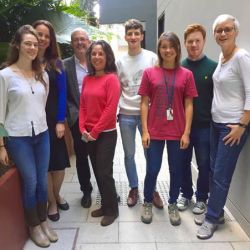
Autoinflammatory Disease
Dr Marcia Munoz is undertaking research that could lead to a new treatment for MKD that could revolutionise the lives of children and adults with the disease.
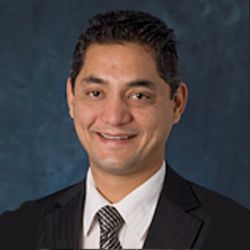
Jack Jumper Ant Allergy
Dr Pravin Hissaria’s team is assessing whether treatment for allergic reactions to Jack Jumper Ant stings, a uniquely Australian problem, is effective.
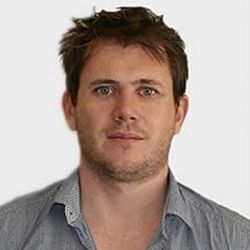
Drug Screening Tool
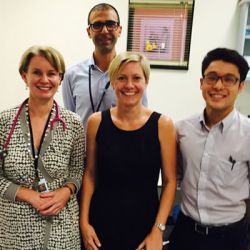
Understanding FPIES
Dr Sam Mehr’s research involves gaining a better understanding of what genes are switched on in Food Protein Induced Enterocolitis Syndrome (FPIES) reaction.

Development of the immune system
Dr Peter Hsu is studying how the regulatory part of the immune system develops in healthy children, to research how this may be disturbed in children with allergies.
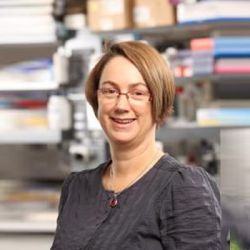
Pollen Allergen Partnership
A/Prof Janet Davies is establishing Australia's first national standardised pollen monitoring program for reliable forecasts of allergenic pollen counts.
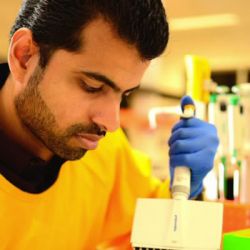
Predicting Shellfish Allergy
Dr Sandip Kamath is researching the cross reactivity of house dust mite allergy and shellfish allergy in children to try to develop a predictive tool.
ASCIA Research Grants 2004-2009
2009 ASCIA Research Grants
Supported by SCHERING PLOUGH:
- Dr Janet Davies and Prof John Upham, QLD: Allergy to subtropical grass pollens in Australia; IgE cross-reactivity between subtropical and temperate grass pollens
- A/Prof Campbell Witt, Prof Patrick Holt and Prof Frank Christiansen, WA: Replication study of genetic predisposition of KIR2DL4 alleles to asthma
2008 ASCIA Research Grants
Supported by GSK:
- Dr Tiffany Hughes, WA: Australian Pollen Immunotherapy study
- Dr Euan Tovey and Dr Janet Rimmer, NSW: Purchase of a TSI 8220 Particle Counter to measure exposure to allergens during sleep
2007 ASCIA Research Grants
- Dr Christine Bundell et al, WA: Evaluation of patient antibody responses to beta2microglobulin in relation to lupus anticoagulant and anti-cardiolipin results
- Dr Rob Stirling et al, VIC: The impact of cofactor and effector cell function in CVID
- Prof Philip Thompson et al, WA: Effects of statins on the migration and apoptosis of dendritic cells
Supported by CSL:
- A/Prof Rohan Ameratunga et al, NZ: Establishment of a national food allergy database
- Prof Simon Brown et al, WA: A study of the use of Intravenous promethazine for anaphylaxis
- A/Prof Pete Smith, QLD: Identification of patients with 18Q21.3 deletions and anaphylaxis
2006 ASCIA Research Grants
- A/Prof Rohan Ameratunga et al, NZ: Identification of novel gene defects in Common Variable Immune Deficiency (CVID): a multi-centre study
- Dr Matthew Cook et al, ACT: Antibody Deficiency Allele (ADA) Pilot Study
- Dr Marianne Empson, Dr Penny Fitzharris and Dr Jan Sinclair, NZ: Fatal anaphylaxis in New Zealand: case finding for the decade 1995-2004 (seed funding)
- Dr Sean Riminton and Philippa Kirkpatrick, NSW: ASCIA PID Register (3rd year of 3 year seed funding)
- Dr Brynn Wainstein, A/Prof John Ziegler, NSW: Evaluation of the risk of anaphylaxis in currently and previously peanut allergic children advised to avoid peanut vs those advised to regularly consume peanut
2005 ASCIA Research Grants
- Prof Simon Brown, WA: Establishing a diagnostic framework for anaphylaxis to native Australian ant venoms (continuation)
- Prof Connie Katelaris and Dr Janet Rimmer, NSW: Application to ASCIA to fund the purchase, establishment and validation of a novel device (Rhinolux) to non-invasively measure nasal congestion
- A/Prof Jo Douglass et al, VIC: A qualitative study of the needs of individuals with primary immunodeficiency disorders in transition from paediatric to adult care
- Dr Rob Loblay, NSW and Dr Mike Gold, SA: Establishment of an ASCIA Anaphylaxis Registry (seed funding)
- Dr Sean Riminton and Philippa Kirkpatrick, NSW: ASCIA PID Register (2nd year of seed funding)
2004 ASCIA Research Grants
- Prof Simon Brown, WA: Establishing a diagnostic framework for anaphylaxis to native Australian ant venoms
- Dr Sean Riminton, NSW: ASCIA PID Register (seed funding)
AIFA Latest News
-

December 2024
Thank you and best wishes for the Festive Season: Allergy and Immunology Foundation of Australasia (AIFA) grants provide early career researchers and their teams with seed funding to progress clinical research. This can lead to further funding and a significant impact on allergy and immunology research. AIFA has awarded grants to 40 allergy and immunology research projects since 2014, which are... -

Grant recipients for 2024
25 September 2024: It is 10 years since the Allergy and Immunology Foundation of Australasia (AIFA) started awarding research grants. AIFA has awarded over $790,000 in grants to support 40 research projects. The Chair of AIFA, Dr Melanie Wong, announced the recipients of the AIFA grants for 2024 at the ASCIA Conference Gala Dinner in Adelaide on 5 September 2024. AIFA Professor Ann Kupa Food Allergy... -

Fundraising for AIFA 2025 research grants
25 June 2024: As the 30th June 2024 and the end of the financial year approaches, we appeal to you to support new and emerging allergy and immunology researchers with a tax-deductible donation to the Allergy and Immunology Foundation of Australasia (AIFA). Donate now at www.allergyimmunology.org.au/donate Every dollar that you donate goes directly to funding research projects, not to...

